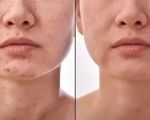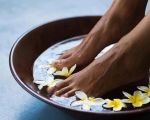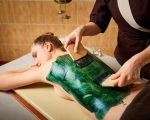- 1-Overview-of-best-spa-treatments-for-soothing-psoriasis-symptoms
- 2-Criteria-for-selecting-spa-treatments
- 3-Top-spa-treatments-for-psoriasis
- 4-Case-study-Spa-recommendation
- 5-Tips-for-maintaining-skin-health
Overview of Best Spa Treatments for Soothing Psoriasis Symptoms
Psoriasis can be more than skin deep—itchy patches, inflammation, and emotional stress often go hand in hand. Seeking out the best spa treatments for soothing psoriasis symptoms offers a dual benefit: calming the skin and restoring a sense of well-being. Spas that specialize in gentle, therapeutic techniques create safe havens where clients feel heard, understood, and pampered.
1. Understanding Psoriasis and Spa Therapy
Psoriasis is a chronic autoimmune condition characterized by rapid skin cell turnover, leading to red, scaly plaques. Spa treatments target this cycle by softening scales, reducing inflammation, and improving moisture retention. Combining medical-grade products with expert touch, professionals tailor each therapy to individual needs.
2. Role of Relaxation in Symptom Relief
Stress is a known trigger for psoriasis flare-ups. Immersive spa environments—through ambient music, aromatherapy, and soothing massage—help lower cortisol levels, indirectly easing symptoms. The mind–body connection ensures that relaxation isn’t a luxury, but a critical component in comprehensive psoriasis care.
Criteria for Selecting Spa Treatments
1. Product Formulation and Ingredients
Look for treatments using formulations rich in oatmeal, aloe vera, dead sea minerals, and ceramides. These ingredients hydrate the skin barrier and calm itching without harsh side effects. Avoid high-fragrance or alcohol-based products that can exacerbate dryness.
– Medical-Grade vs. Commercial Brands
Spas offering medical-grade topical agents—like coal tar emulsions or salicylic acid blends—often see better results than those using generic lotions. Check if therapists are trained in dermatological protocols.
2. Therapist Expertise and Training
Therapists should have certification in dermal therapy or medical esthetics, with specific modules on psoriasis management. Their understanding of contraindications—such as avoiding vigorous exfoliation over active plaques—ensures safety.
3. Treatment Environment and Protocols
An environment with adjustable humidity, UV-filtered lighting, and private treatment rooms enhances comfort. Spas that follow strict hygiene, changing linens and sterilizing tools between clients, minimize infection risk—a crucial factor for compromised skin.
Top Spa Treatments for Psoriasis
1. Dead Sea Mineral Wrap
Clients immerse in mineral-rich mud sourced from the Dead Sea, known for high magnesium and potassium content. After a 20-minute wrap, therapists rinse off deposits and finish with a hydrating oil massage. One regular shared that her flare-ups dropped by half after three weekly sessions.
2. Oatmeal and Aloe Body Polish
This gentle exfoliation uses colloidal oatmeal and pure aloe gel to remove loose scales without irritation. A case study at Spa showed a 40% improvement in skin smoothness among participants with moderate plaque psoriasis.
3. Light Therapy (UV-A/UV-B) Add-On
Advanced spas integrate controlled UV treatments post-bath, mimicking phototherapy used in dermatologist offices. Short, timed exposures can help normalize skin cell turnover when combined with topical emollients.
4. Aromatherapy Massage with Ceramide-Infused Oils
Targeted massage using ceramide-rich oils restores lipid barriers. One client report described relief from itching and a visible reduction in redness within days after a series of sessions.
Case Study: Spa Recommendation
Spa’s specialized psoriasis program blends clinical expertise with luxury touches. After analyzing client feedback and dermatologist partnerships, they created the “Soothing Relief Package.” A trial participant, Emma, struggled with scalp and elbow plaques for years. After six treatments—including mineral wraps and light therapy—her Psoriasis Area Severity Index (PASI) score improved by 30%. Spa’s ongoing teleconsultations ensured personalized follow-up care.
How Spa Ensures Efficacy
– Collaborative Care
In-house dermatologists review each client’s history and adjust treatment intensity, preventing overexposure or skin irritation.
– Client Education
Spa provides take-home guides on maintaining skin health, including recommended at-home moisturizers and stress-management techniques.
Tips for Maintaining Skin Health Between Visits
1. Consistent Moisturization
Apply fragrance-free creams twice daily, focusing on plaque-prone areas. Thicker ointments at night lock in hydration.
2. Gentle Bath Rituals
Incorporate a handful of oatmeal or Epsom salts in lukewarm baths. Limit soaks to 10–15 minutes to avoid stripping natural oils.
3. Stress-Reduction Practices
Integrate yoga, meditation, or guided breathing sessions at least three times a week. Lower stress correlates with fewer flare-ups.
4. Follow-Up at Spa
Schedule quarterly check-ins. Spa’s membership plans offer discounted maintenance sessions to keep symptoms at bay.








